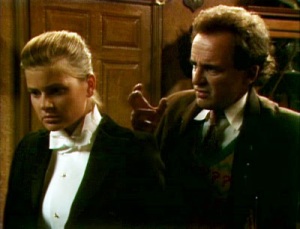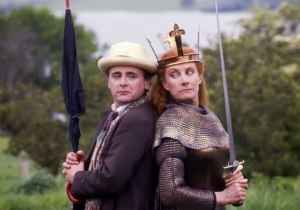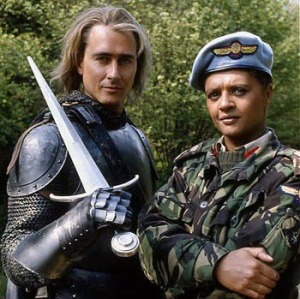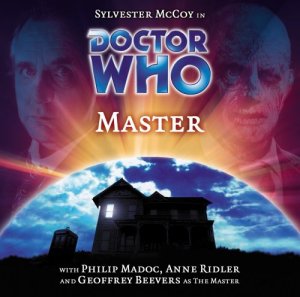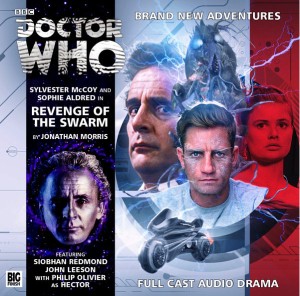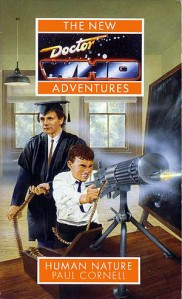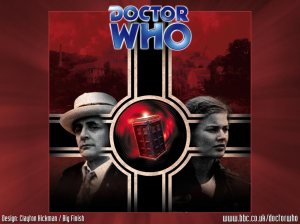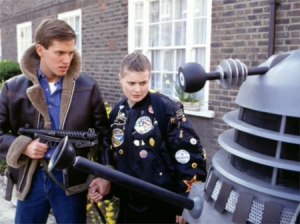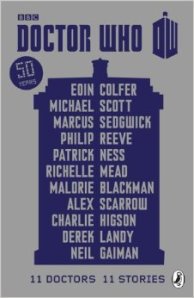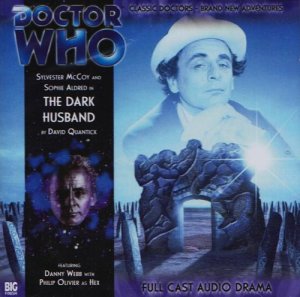 Usually, when I decide to listen to a Doctor Who audio, I look through the list of audios I own and choose one that sounds interesting. However, with a couple of hours to kill and no Internet connection, I pulled out my iPod and chose a random audio to listen to, and it was “The Dark Husband”, the 106th audio in the main range, featuring the Seventh Doctor, Ace, and Hex. Unfortunately, it turned out to be pretty disappointing.
Usually, when I decide to listen to a Doctor Who audio, I look through the list of audios I own and choose one that sounds interesting. However, with a couple of hours to kill and no Internet connection, I pulled out my iPod and chose a random audio to listen to, and it was “The Dark Husband”, the 106th audio in the main range, featuring the Seventh Doctor, Ace, and Hex. Unfortunately, it turned out to be pretty disappointing.
Spoilers, of course.
For a bit of a break, the Doctor takes Ace and Hex to what he calls the greatest festival in the galaxy, on a gorgeous planet. When they get there, they discover that the planet is in the middle of a centuries-long war between the two different races on the planet, the red-haired soldiers called the Ri and the bald philosophers called the Ir, who both worship their god, Tuin. The festival does occur as scheduled, as it’s the one time when truce is called and all hostilities are set aside. The Doctor then announces that he actually knew that the planet had been at war and had come here to stop the war by offering himself as the Suitor. He’s immediately proclaimed to be the Dark Husband, and the search is begun for the Shining Wife, and the war is to end when the two are married.
As the search proceeds, the priests of Tuin tie the Doctor up to be sacrificed to the god by fire. Ace fights through the crowd and soldiers to get to him to free him, and is proclaimed to be the Shining Wife, the woman who shows the sought-after bravery. However, before the ceremony can continue, Hex then offers himself to be the Dark Husband, to free the Doctor from having to marry Ace (and possibly for his own reasons as well…) The two are then mind-controlled by the god, and the Doctor discovers that the marriage is followed by combat: the Dark Husband and the Shining Wife are destined to fight until one of them is killed.
Through talking to the Ri and Ir friends that he’s made, the Doctor discovers what’s really going on. The planet, Tuin, is the god that the Ri and Ir worship, and it wanted to create the perfect species but couldn’t decide which was better, strength or cunning, so it created the two races and had them fight each other. Since they couldn’t overcome each other, it then decided that once each side had its champion, the Dark Husband and the Shining Wife, the two would fight, and it would transform all of individuals on the planet into the winning race. The problem, of course, is that the two champions were human, so no matter which one won, the planet would not be able to transform the people into the champion’s race and the entire species would die. At the last moment, the Doctor’s Ri and Ir friends declared themselves the Dark Husband and the Shining Wife, then chose to die together, forcing the planet to create the species from both of them, at last uniting the two races into a whole.
The overall story was interesting enough, but it went at a plodding pace, with not much happening for most of the story. The side characters – the Ri and Ir friends – were rather two-dimensional, with the Ri soldier only interested in fighting and drinking and the Ir philosopher only interested in making snarky comments; this was disappointing because Doctor Who is usually really good at creating interesting, deep guest characters. It also felt really weird that the Doctor decided to offer himself as the Suitor when he really had no idea what that entailed at all. The war had been going on for thousands of years and no one had ever offered themselves as the Suitor, so you’d think that the Doctor would wonder why.
The one strength of the story was that it had humorous dialogue and the banter was great. It also gave me (someone who doesn’t listen to audios in the right order) a little taste of Hex, though I think I need to listen to some of his earlier stories to really see his character progression.
Bottom line, though, I wouldn’t recommend this audio; there are far better ones out there to listen to.

